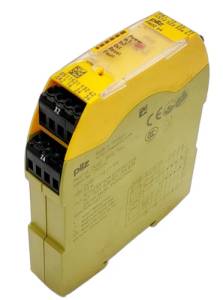
This comprehensive training program equips you with the in-demand skills needed to excel in the exciting world of electrical, electronic, and programmable logic controller (PLC) systems. Whether you're a seasoned professional looking to upskill or a newcomer seeking a rewarding career, this program offers a structured and engaging learning experience covering fundamental concepts to advanced applications.
What You'll Learn:
This program is divided into three core modules, offering a deep dive into each technology and highlighting their interconnectivity:
Module 1: Electrical Fundamentals
Module 2: Electronic Fundamentals
Module 3: Programmable Logic Controllers (PLCs)
Who Should Attend:
Course Outcomes:
Upon completion of this program, participants will be able to:
Enroll Today and Launch Your Career in the Thriving Field of Electrical, Electronic, and PLC Systems!